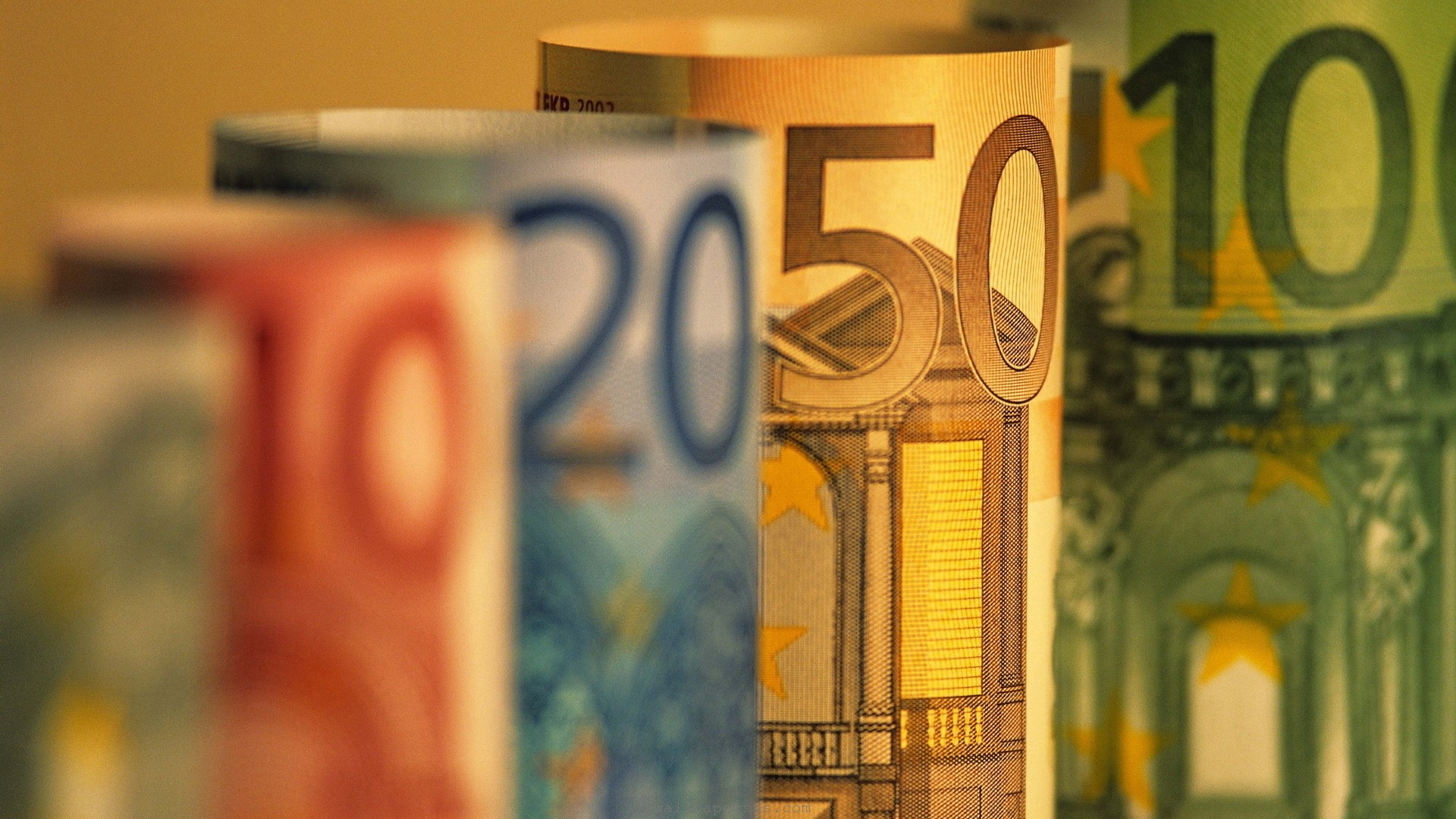Euro-area finance ministers signed off on a second Greek bailout, clearing the way for the first payment from the 130 billion-euro package ($170 billion) to be made this month.
The eurozone group has backed Greece’s second bailout pending a contribution from the International Monetary Fund (IMF). Finance ministers from the 17-strong currency bloc had been meeting in Brussels to approve the package.The meeting followed Greece swapping most of its privately-held bonds with new ones worth less than half their original value.
“The new Greek program is not only in its starting blocks, but has been politically adopted tonight by the euro group,” Luxembourg Prime Minister Jean-Claude Juncker, who heads the group of 17 finance ministers, said in Brussels late yesterday. Euro finance officials will give a formal approval on March 14, a day before the International Monetary Fund board votes on its contribution. Jean-Claude Juncker says that Greece will not need a third bailout if it implements its reform program. Juncker and fellow eurozone finance ministers were meeting in Brussels to approve the new loan deal. The head of the Eurogroup, Jean-Claude Juncker, had encouraging words for Greece, marking a distinct change to the recent atmosphere at these gatherings of finance ministers, where there had been skepticism about the country’s future. Speaking to Skai TV’s “New Files” program, Juncker insisted there was no question of Greece leaving the eurozone.
Greece‘s debt-to gross domestic product ratio is also expected to fall to 117%.
Greece’s second bailout package can make its debt sustainable, but Athens will have to stick firmly to agreed policies until 2030 and may need more money after 2014, an updated debt sustainability analysis by international lenders shows.
The analysis, prepared by the European Commission, the European Central Bank and the International Monetary Fund for euro zone financeministers and obtained exclusively by Reuters, shows that after the debt swap at the weekend, Greek debt could fall to 116.5 percent of GDP in 2020 and 88 percent in 2030. “Results show that the program can place Greek debt on a sustainable trajectory,” said the analysis, marked strictly confidential. However, it also warned that the debt trajectory was extremely sensitive and the program was “accident prone”. It said the restructuring of privately held Greek bonds would help to initially reduce debt, but that debt would spike up again to 164 percent of GDP in 2013 due to the shrinking economy and incomplete fiscal adjustment. “Once the fiscal adjustment is complete, growth has been restored, and privatization receipts are accruing, steady reductions of the debt ratio commence. Greece would have to maintain good policies through 2030 to reduce the ratio below 100 percent of GDP,” the report said. The euro zone may also have to be prepared to lend even more money to Athens, the report said.It said that when Greece tries to return to markets after 2014, it would first have to issue short-term debt and still pay high interest rates because its debt ratio would still be high, it would have senior debt to pay back first and it would need to establish a considerable track record with the market. “This would initially discourage large issuances and imply continued reliance on official financing, as committed by Euro area member states on standard EFSF borrowing terms, provided Greece successfully implements its program,” the report said.
The market however, is not convinced Greece has avoided a disorderly default. The new Greek bonds offered high yields from their very first day of issue on Monday, indicating that the markets have not ruled out a disorderly default for Greece. The Public Debt Management Agency (PDMA) went ahead on Monday with the swap of the old Greek law bonds, with a nominal value of 177.25 billion euros, given that some 86 percent of holders agreed voluntarily to the haircut, while collective action clauses (CACs) were activated for the rest. The 20 new Greek bonds had yields ranging from 13.6 percent, for the 30-year bonds, to 19 percent, for the 10-year ones.
Sources:
BBC: http://www.bbc.co.uk/news/
Guardian: http://www.guardian.co.uk/
Reuters: http://www.reuters.com/
Kathimerini: http://www.ekathimerini.com/
——————————
Μετά την αίσια κατάληξη της «Οδύσσειας» του PSI ξεκινά ο μαραθώνιος της ανάπτυξης, του οποίου η επιτυχία προϋποθέτει την αγαστή σύμπραξη της ελληνικής κυβέρνησης, των ξένων τεχνοκρατών της Task Force, την αρωγή του τραπεζικού συστήματος μετά την ανακεφαλαιοποίησή του και την πιστή τήρηση των μνημονιακών όρων και των χρονοδιαγραμμάτων του. Οι υπουργοί Οικονομικών της ευρωζώνης ενέκριναν αργά τη Δευτέρα το δεύτερο πακέτο διάσωσης της Ελλάδας, στρέφοντας παράλληλα όλα τα πυρά τους κατά της Ισπανίας, απαιτώντας από τη χώρα να μειώσει περισσότερο το έλλειμμά της φέτος από όσο η ίδια σχεδιάζει. προηγούμενη πρόβλεψη έκανε λόγο για χρέος στο 120% του ΑΕΠ το 2020.
Ο Γερμανός υπουργός Οικονομικών εξέφρασε την ικανοποίησή του με το πρόγραμμα ανταλλαγής ομολόγων (PSI): “Σημειώθηκε πρόοδος στο χθεσινό Eurogroup. Το ποσοστό συμμετοχής του ιδιωτικού κλάδου στο πρόγραμμα ανταλλαγής ομολόγων ήταν υψηλότερο από ό,τι αναμενόταν”. “Έλεγαν πάντα ότι δεν θα πετύχει, ότι ο ιδιωτικός τομέας δεν θα το δεχθεί. Αν γνώριζαν όλοι εξαρχής τι είναι δυνατό και τι όχι, δεν θα είχε δημιουργηθεί ο κόσμος”, δήλωσε ο Schaeuble στο Eurogroup.
Η επιτυχία του PSI ώθησε την τρόικα να αναθεωρήσει επί το ευνοϊκότερο τις προβλέψεις της για την εξέλιξη του ελληνικού χρέους. Σύμφωνα με τις εκτιμήσεις της, το χρέος θα πέσει από το τρέχον επίπεδο του 160% επί του ΑΕΠ στο 116,5% του ΑΕΠ το 2020. Η προηγούμενη πρόβλεψη έκανε λόγο για χρέος στο 120% του ΑΕΠ το 2020. “Τα αποτελέσματα δείχνουν ότι το πρόγραμμα μπορεί να θέσει το ελληνικό χρέος σε βιώσιμη τροχιά”, ανέφερε η έκθεση, που περιήλθε στην κατοχή του Reuters. Ωστόσο, η Αθήνα θα πρέπει να διατηρήσει ορθή οικονομική πολιτική έως το 2030 για να μειώσει το χρέος της σε βιώσιμα επίπεδα κάτω του 100% του ΑΕΠ, σύμφωνα με την αναθεωρημένη έκθεση βιωσιμότητας του ελληνικού χρέους από την τρόικα. “Υπάρχουν σοβαροί κίνδυνοι να διακοπεί η πτωτική πορεία του χρέους ή και να αντιστραφεί από διάφορα σοκ. Βάσει ενός εναλλακτικού, λιγότερου ευνοϊκού σεναρίου, το ποσοστό χρέους το 2020 θα παραμείνει πάνω από το 145% του ΑΕΠ”, ανέφερε η έκθεση. “Επιπλέον, με δεδομένο το υψηλό εκτιμώμενο επίπεδο χρέους… είναι αβέβαιες οι προοπτικές της Ελλάδας να επανέλθει στις αγορές μετά τη λήξη του προγράμματος.”
Η έγκριση του πακέτου διάσωσης από το Eurogroup, σε συνδυασμό με τις νέες εκτιμήσεις, ότι μετά το PSI το ελληνικό χρέος θα μειωθεί περισσότερο από ό,τι μέχρι σήμερα πιστευόταν, επιτρέπουν τη βελτίωση του κλίματος στο χρηματιστήριο. Στο τιμόνι οι τράπεζες, με το Γενικό Δείκτη να κινείται λίγο χαμηλότερα από τις 750 μονάδες. Ο Γενικός Δείκτης ενισχύεται κατά 0,92%, στις 740 μονάδες και ο FTSE 20 κερδίζει 1,1%.
Η Moody’s υποβάθμισε την Τρίτη το αξιόχρεο της Κύπρου σε “ΒΑ1/ΝP” από «Baa3/Prime-3» κυρίως εξαιτίας ανησυχιών για τη στήριξη που θα πρέπει ενδεχομένως να προσφέρει στις τράπεζές της.
Πηγές:
Κέρδος: http://www.kerdos.gr/default.
http://www.kerdos.gr/default.a
Iσοτιμία: http://www.isotimia.gr/
http://www.isotimia.gr/default
More News
Gold Falls Before Federal Reserve Meeting as Stronger Dollar Saps Demand
Gold declined before a Federal Open Market Committee meeting and asGreece prepares to receive a second bailout. Platinum rose above gold for a second day
Source: Bloomberg
Inside Mario Draghi’s quiet revolution
On Dec. 8 last year, Mario Draghi sat down to chair his second policy meeting as European Central Bank president. Wearing the same understated, dark blue tie he had sported when he led the ECB to a surprise interest rate cut at his first meeting as president a month earlier, Europe’s most powerful banker wanted to hear his colleagues’ arguments on what action to take this time.The meeting, held on the 36th floor of the ECB’s glass and steel Frankfurt headquarters, opened with recommendations from veteran policymaker and chief economist Juergen Stark, a German, according to two people present. Made in the Bundesbank’s inflation-fighting mould, Mr. Stark felt the Council should wait to see how price pressures developed before moving again. Inflation was running at 3%, well above the ECB’s target of just under 2%. This was no time to cut.
Source: Financial Post
L’euro monte encore, soulagement prudent apres l’adoption de l’aide a Athenes
L’euro poursuivait son rebond mardi profitant du soulagement des investisseurs apres l’adoption lundi soir par les ministres des finances de la zone euro du nouveau plan d’aide de 130 milliards d’euros a la Grece. Vers 07H00 GMT (08H00 a Paris), l’euro valait 1,3168 dollar contre 1,3147 dollar lundi vers 22H00 GMT. L’euro baissait legerement face a la monnaie japonaise a 108,16 yens contre 108,22 yens lundi soir. Le dollar reculait face a la devise nippone a 82,14 yens contre 82,32 yens lundi soir.
Source : Les Echos
La Grece pourrait demander une renegociation du plan apres les elections.
La politique grecque vit desormais au rythme des elections anticipees qui se tiendront dans le courant de la premiere quinzaine de mai au plus tard. Aussitot la restructuration de la dette souveraine engagee, voila que les deux principaux partis politiques grecs, la Nouvelle Democratie conservatrice d’Antonis Samaras et le Pasok social-democrate, se lancent deja dans une competition electorale qui s’annonce d’une rare durete. Ebranle par les nombreux echecs du gouvernement de son precedent leader, Georges Papandreou, le Pasok a choisi ce week-end son nouveau chef : Evangelos Venizelos, l’ancien opposant malchanceux a Georges Papandreou.
Source : Les Echos
Grece: 2e plan d’aide cette semaine
Le deuxieme plan d’aide a la Grece pour lui eviter la faillite sera signe cette semaine, une fois levees les dernieres conditions purement formelles, a assure lundi le ministre allemand des Finances, Wolfgang Schauble. “Il n’y a plus de doutes” sur le fond, a-t-il declare a la presse en arrivant a une reunion avec ses homologues de la zone euro a Bruxelles. “Le deuxieme programme pour la Grece sera signe dans le courant de la semaine”, a-t-il ajoute devant la presse. Il a souligne que les dernieres conditions “formelles” a remplir ne devraient pas poser de probleme. En Allemagne, en particulier, une commission de la chambre des deputes allemands (Bundestag) doit valider la participation de Berlin au programme de soutien.
Source : Le Figaro
Πόσο τελικώς θα κοστίσει στις τράπεζες το κούρεμα
Σε λιγότερο από ένα εικοσαήμερο, η «γυμνή αλήθεια» των ισολογισμών των τραπεζών και των ζημιών τους, ως αποτέλεσμα συμμετοχής τους στο PSI, θα είναι ορατή σε όλο το επενδυτικό κοινό και θα αποτελέσει αντικείμενο προβληματισμού για τις κινήσεις περαιτέρω κεφαλαιακής θωράκισης του τραπεζικού χώρου.
Πηγή: Kέρδος
Οι υπουργοί Οικονομικών της Ευρωπαϊκής Ενωσης αναμένεται να ενισχύσουν σήμερα την πίεση προς την Ουγγαρία για το υπερβάλλον δημοσιονομικό της έλλειμμα παγώνοντας την καταβολή εκατομμυρίων ευρώ ευρωπαϊκής βοήθειας προς τη Βουδαπέστη.
Πηγή: Kέρδος



